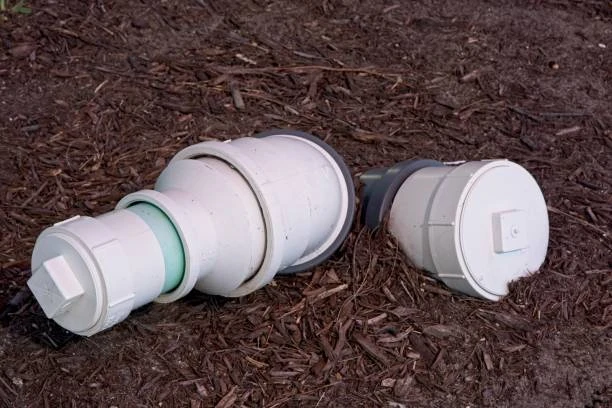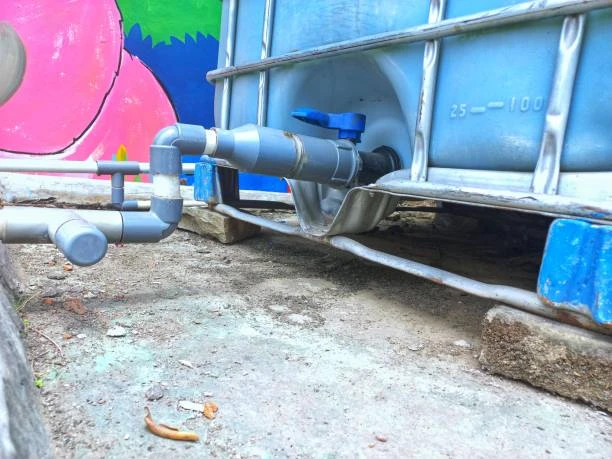The Erie County Water Authority (ECWA) has filed a class-action lawsuit against several major PVC pipe producers, accusing them of price-fixing. This lawsuit claims that the companies conspired to inflate prices for polyvinyl chloride (PVC) pipes, which are widely used in water systems, construction, and other critical infrastructure projects. The case, which has garnered significant attention, could have far-reaching consequences for both the piping industry and consumers.
In this article, we’ll delve into the specifics of the lawsuit, explore the role of major PVC pipe producers, and examine the potential implications for the industry and consumers. We’ll also consider the broader context of price-fixing in the construction and materials sectors, along with the potential outcomes of such legal actions.
What is Price Fixing and How Does it Affect the Market?
Price fixing occurs when competing companies agree to set prices at a certain level, rather than letting market forces dictate prices. This illegal practice prevents competition, leads to inflated prices, and harms consumers by eliminating the benefits of a free market. In the case of PVC pipes, the ECWA claims that major producers of these pipes colluded to manipulate prices, leading to artificially high costs for the material.
PVC pipes are essential components in infrastructure projects, particularly in water distribution systems. Given the scale of demand in construction, utilities, and industrial projects, even small price increases can result in significant financial burdens. Price fixing of such essential materials raises serious concerns about fairness and transparency in the marketplace.
The Allegations Against Major PVC Pipe Producers
In the class-action lawsuit, the Erie County Water Authority alleges that several major PVC pipe producers, who dominate the market, engaged in a concerted effort to inflate the prices of PVC pipes. The lawsuit claims that these companies coordinated price increases over a period of years, despite fluctuations in raw material costs and market conditions that would have otherwise led to lower prices.
The lawsuit specifically accuses the producers of conspiring to restrict competition, manipulate supply and demand, and control pricing strategies in an anti-competitive manner. The ECWA states that this caused inflated prices for PVC pipes, which companies passed on to consumers, including municipalities and contractors relying on the pipes for critical infrastructure.
Who Are the Major PVC Pipe Producers Involved?
The lawsuit targets several large companies in the PVC pipe manufacturing industry, including some of the most well-known names in construction materials. Some of the major PVC pipe producers accused of price fixing include:
- Charlotte Pipe and Foundry
As one of the largest manufacturers of PVC pipes in the United States, Charlotte Pipe and Foundry is a key player in the market. The company produces a wide range of PVC products for water distribution, plumbing, and irrigation. - JM Eagle
JM Eagle is another major producer of PVC pipes, serving various sectors such as water, sewer, and industrial applications. The company is one of the largest suppliers of plastic pipes in North America. - IPEX
IPEX is a leading manufacturer of plastic piping systems, including PVC pipes, for residential, commercial, and industrial use. The company’s PVC products are widely used in water and wastewater management. - CertainTeed
CertainTeed, a subsidiary of Saint-Gobain, manufactures a broad range of building materials, including PVC piping. It has a significant share of the market for piping used in both residential and industrial applications.
Authorities accuse these companies of colluding to fix prices, allegedly leading to unfair pricing practices for municipalities, contractors, and consumers relying on PVC pipes for construction and maintenance projects.
How Does Price Fixing Impact the Water Authority and Other Consumers?
The alleged price-fixing scheme is said to have profoundly impacted the Erie County Water Authority and other PVC pipe consumers. As one of the largest public water authorities in the region, ECWA is a significant purchaser of PVC pipes for infrastructure projects, including water mains and service lines. Price increases driven by collusion between manufacturers would have led to higher operational costs for ECWA, potentially diverting funds from other essential public services.
Price fixing can have several adverse effects on consumers and businesses, including:
- Higher Costs for Essential Infrastructure
When the price of PVC pipes rises due to artificial inflation, the cost of building or repairing water systems, sewer systems, and other infrastructure projects also increases. This can result in budget overruns and delays in critical public works projects. - Limited Competition and Innovation
A lack of competition often stifles innovation, as companies may not feel the need to improve their products or lower prices. In a healthy market, competition drives both quality improvements and cost reductions. - Unfair Burden on Public and Private Sector Projects
Public water authorities, municipalities, and private contractors all suffer from higher costs due to price fixing. In some cases, these increased costs could lead to a reduction in the scope or scale of infrastructure projects, impacting long-term community development.
Legal Consequences for Major PVC Pipe Producers
If the class-action lawsuit filed by the Erie County Water Authority proves successful, the major PVC pipe producers accused of price-fixing could face substantial legal consequences. These might include:
- Monetary Damages
The court could order the companies to pay significant damages to the affected parties. This may include reimbursement for overcharged amounts, which could be substantial, considering the scale of PVC pipe purchases by utilities and construction companies. - Antitrust Penalties
Price fixing is a violation of antitrust laws, which aim to promote competition and protect consumers. The companies could face penalties from government regulators such as the U.S. Federal Trade Commission (FTC) or the Department of Justice. - Reputation Damage
Beyond financial penalties, the accused companies may suffer long-term damage to their reputation. Public trust in these brands could erode, and their standing in the market could be negatively impacted. - Regulatory Scrutiny
The companies involved could face heightened regulatory scrutiny in the future, leading to increased oversight and potential restrictions on their business practices.

The Role of Antitrust Laws in Price Fixing Cases
Antitrust laws are designed to prevent anti-competitive behavior in the marketplace. Price fixing falls squarely under the category of anti-competitive practices, as it undermines free-market principles and harms consumers. The U.S. Sherman Antitrust Act, along with other legislation, prohibits companies from engaging in such practices.
In this case, the Erie County Water Authority’s class-action lawsuit highlights the importance of enforcing antitrust laws in industries like construction materials, where monopolistic practices can have widespread consequences. By holding companies accountable for price fixing, the legal system can help restore competition and ensure fair prices for consumers.
Broader Implications for the PVC Pipe Industry
The class-action lawsuit and its potential outcomes could have broader implications for the PVC pipe industry as a whole. Key industry trends and potential changes include:
- Increased Regulatory Oversight
If the lawsuit results in penalties or legal action, it could lead to stricter oversight of the PVC pipe industry. Regulators may impose tighter controls on pricing practices and scrutinize the activities of major players in the market more closely. - More Competitive Pricing
If the alleged price-fixing scheme is proven, the market could shift towards more competitive pricing in the future. With legal challenges and the threat of penalties, manufacturers may be less likely to engage in anti-competitive behavior. - Impact on Industry Consolidation
The lawsuit could also affect ongoing consolidation trends within the industry. Larger companies involved in price fixing may face more scrutiny, making it harder for them to expand through acquisitions or mergers. - Long-Term Industry Changes
In the long term, the outcome of this case could lead to structural changes in the PVC pipe market. Other manufacturers may be motivated to adopt more transparent pricing practices to avoid similar legal risks.
FAQs
1. What is price fixing in the PVC pipe industry?
Price fixing occurs when companies agree to set prices at artificially high levels, limiting competition and driving up costs for consumers.
2. Why is the Erie County Water Authority suing PVC pipe producers?
The ECWA is suing the companies for allegedly colluding to inflate prices of PVC pipes, which harmed consumers by raising the cost of essential infrastructure.
3. Who are the major PVC pipe producers involved in the lawsuit?
The lawsuit targets major companies such as Charlotte Pipe and Foundry, JM Eagle, IPEX, and CertainTeed, which dominate the PVC pipe market.
4. How does price fixing affect consumers?
Price fixing leads to higher costs for essential materials like PVC pipes, which increases the overall cost of infrastructure projects and harms consumers and public services.
5. What are the potential legal consequences for companies found guilty of price fixing?
If found guilty of price fixing, companies could incur substantial monetary damages, antitrust penalties, reputational damage, and increased regulatory scrutiny.


















